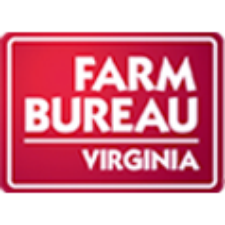In the past seven years farmers in the Chesapeake Bay watershed have reduced nitrogen losses from their fields by 26 percent and phosphorus runoff by 46 percent, according to a new report from the U.S. Department of Agriculture.

“These conservation efforts help to clean our soil and water, boost outdoor recreation that adds more than $640 billion to our economy, and ensure that agriculture has the tools to remain productive in the years to come. The good work of Chesapeake Bay landowners has generated substantial progress in a short period of time, but more needs to be done—which is why it is critical that Congress act now to pass a Farm Bill that provides the full array of programs and incentives to build on these efforts.”
Vilsack spoke at the Stafford County farm of Gerry Silver, a property that’s been in Silver’s family since 1876. Silver farms with his son, Mike, and has implemented numerous voluntary conservation practices on their 440 acres of corn, soybeans and grassland. They raise about 300 head of beef cattle on the former dairy farm.
“We’re completely no-till, have been for a number of years,” Silver said. “That brings a lot of benefits to the farm, like maintaining moisture in the summer and cutting down on erosion and everything that goes with that. We’ve been using cover crops now for at least four years. We’ve got all the cattle fenced out of the streams and ponds. We’ve got conservation easements on some of the property.”
In addition to federal dollars for conservation programs available through the USDA’s Natural Resources Conservation Service, a wide variety of agencies help farmers and landowners implement conservation practices, said Richard Street, a member of the Tri-County Soil and Water Conservation Board.
“For instance, to meet the new stormwater management regulations, it’s not just the locality that does it, but also the local soil and conservation district, USDA/NRCS, Forestry, and Game and Inland Fisheries and even our Extension agent,” Street said. “We all have to work together to meet the goals of our total maximum daily loads to clean up the Chesapeake Bay.”










